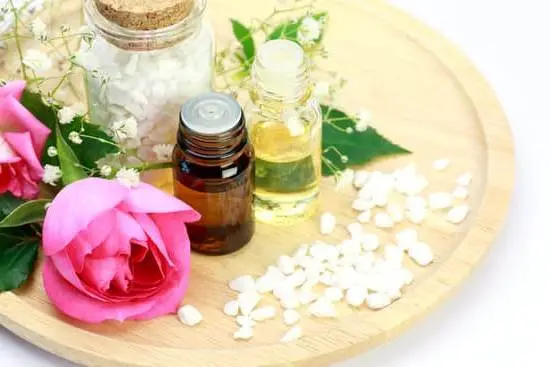Rosemary aromatherapy is a powerful and invigorating practice that has gained significant popularity in recent years. The use of essential oils for various therapeutic purposes, known as aromatherapy, has been praised for its holistic benefits on both the mind and body. Among these essential oils, rosemary stands out as a versatile and potent oil with numerous healing properties.
In this article, we will delve into the world of rosemary aromatherapy and explore its many uses and benefits. We will uncover the fascinating history and cultural significance of rosemary, tracing its ancient origins in traditional medicine and spirituality. Additionally, we will uncover the science behind rosemary’s therapeutic effects by exploring its unique chemical composition. Understanding how it interacts with the body allows us to harness its healing powers more effectively.
One of the key aspects we will touch upon is how rosemary aromatherapy can alleviate stress and anxiety. Inhaling rosemary oil has been found to promote relaxation, reduce stress levels, and help alleviate symptoms of anxiety. Furthermore, we will examine how rosemary supports cognitive function by enhancing mental clarity, improving memory, and boosting overall brain function.
Stay tuned as we also reveal how rosemary aromatherapy can provide relief from physical discomfort such as muscle soreness, headaches, and joint pain. We will explore its analgesic and anti-inflammatory properties which make it an excellent choice for natural pain relief. Additionally, we will examine how rosemary benefits respiratory health by clearing congestion and supporting lung health.
As if that wasn’t enough, we will also discuss how rosemary aromatherapy can be used to promote hair growth, combat dandruff, rejuvenate the skin by addressing acne, signs of aging, and inflammation. Rosemary oil has shown remarkable revitalizing effects on hair and skin health.
Throughout this article series filled with valuable insights on the invigorating power of rosemary aromatherapy, we will provide practical application methods and precautions to ensure safe utilization. Whether you are new to aromatherapy or a seasoned enthusiast, there is something for everyone to discover and embrace in the world of rosemary aromatherapy.
Unveiling the Origins
Rosemary has a rich history and holds cultural significance in various civilizations around the world. This section will delve into the ancient uses of rosemary, shedding light on its importance in traditional medicine and spirituality.
Ancient Uses of Rosemary
The use of rosemary can be traced back to ancient civilizations such as the Egyptians, Greeks, and Romans. In Egypt, rosemary was considered a sacred herb used in religious ceremonies and as an offering to the gods. The Greeks revered rosemary for its medicinal properties, using it to improve memory and concentration. They even believed that rosemary could ward off evil spirits and protect against plague.
In Roman culture, rosemary played a crucial role in both religious rituals and daily life. It was often used during weddings as a symbol of love and loyalty. The Romans also utilized rosemary as a culinary herb, adding it to their dishes for flavor enhancement.
Spirituality and Symbolism
Beyond its practical uses, rosemary holds symbolic meanings in different cultures. In ancient Greece, it was believed that placing sprigs of rosemary under one’s pillow could enhance dream recall and provide protection during sleep. In some European traditions, burning rosemary was thought to purify spaces and eliminate negative energies.
Moreover, Rosemary has been associated with remembrance throughout history. It is said that in Shakespeare’s play “Hamlet,” Ophelia famously declares “There’s rosemary, that’s for remembrance.” Due to this association with memory enhancement abilities, students often wore garlands made from rosemary during examinations.
Traditional Medicinal Uses
Rosemary has traditionally been valued for its many health benefits. In ancient Greece, it was commonly used to alleviate headaches and treat digestive disorders. Traditional healers in India utilized rosemary for its antibacterial properties to heal wounds and prevent infections.
The essential oil derived from rosemary was also used topically to relieve muscle pain and improve circulation. Rosemary tea was prepared to soothe indigestion and support respiratory health.
Overall, the history and cultural significance of rosemary highlight its enduring reputation as a versatile herb with numerous practical applications. Understanding its past uses can help us appreciate the value of rosemary aromatherapy in promoting overall well-being today.
Harnessing the Healing Properties
Rosemary aromatherapy has gained significant popularity in recent years due to its numerous therapeutic benefits. To truly appreciate the power of rosemary essential oil, it is crucial to understand the science behind its healing properties. This section will delve into the unique chemical compounds present in rosemary oil and how they interact with the body to produce therapeutic effects.
One of the key chemical components found in rosemary essential oil is 1,8-cineole, also known as eucalyptol. This compound possesses anti-inflammatory, analgesic, and antioxidant properties that contribute to the overall healing potential of rosemary oil. Eucalyptol acts as a bronchodilator, helping to open up the airways and improve respiratory function. It also exhibits neuroprotective effects by reducing inflammation in the brain and promoting optimal cognitive function.
Another important compound found in rosemary essential oil is rosmarinic acid, which possesses potent antioxidant properties. This compound helps fight against oxidative stress in the body, protecting cells from damage caused by free radicals. Additionally, rosmarinic acid can help reduce inflammation and allergic responses in the body, making it beneficial for individuals with conditions such as asthma or allergies.
The fragrance of rosemary essential oil is attributed to a group of compounds known as terpenes. These aromatic chemicals not only contribute to the pleasant scent of rosemary but also have therapeutic effects on mood and emotional well-being. Terpenes like pinene and limonene have been shown to have anxiolytic (anti-anxiety) and antidepressant properties, helping to promote relaxation and uplift mood.
Understanding the science behind rosemary aromatherapy provides insight into why this essential oil is so effective in promoting overall well-being. From its anti-inflammatory and analgesic properties to its impact on respiratory health and emotional well-being, rosemary essential oil offers a holistic approach to healing. By harnessing these healing properties, individuals can experience the many benefits of rosemary aromatherapy in their daily lives.
Easing Stress and Anxiety
Rosemary aromatherapy has been known for its ability to alleviate stress and anxiety, providing a sense of calm and relaxation. Inhaling rosemary oil can have a direct impact on the body’s stress response, helping to regulate hormones and induce a state of tranquility. Many individuals turn to this ancient practice as a natural way to reduce daily stressors and promote emotional well-being.
One of the main mechanisms behind the calming effects of rosemary aromatherapy lies in its ability to interact with the central nervous system. When inhaled, the scent molecules from rosemary essential oil travel through the olfactory system and stimulate certain areas in the brain that are responsible for emotions and mood regulation. This can lead to a reduction in anxiety symptoms, including feelings of restlessness, irritability, and tension.
Studies have shown that rosemary oil contains compounds such as camphor, cineole, and borneol, which possess anxiolytic properties. These compounds help to activate neurotransmitters like gamma-aminobutyric acid (GABA), which has a calming effect on the brain by reducing excessive neuronal activity. As a result, individuals may experience reduced heart rate, lowered blood pressure, and an overall sense of relaxation after using rosemary aromatherapy.
Furthermore, rosemary aromatherapy has also been found to have mood-enhancing effects due to its uplifting scent. The aroma of rosemary invigorates the senses and stimulates positive emotions, allowing individuals to feel more refreshed and rejuvenated. It can be particularly beneficial during periods of high stress or when experiencing symptoms of anxiety.
Boosting Cognitive Function
Rosemary aromatherapy has been found to have a profound impact on cognitive function, enhancing mental clarity, focus, and overall brain health. Numerous studies have shown that the aroma of rosemary essential oil can improve memory, increase alertness, and promote cognitive performance.
One study conducted by Northumbria University in the United Kingdom found that participants who were exposed to the scent of rosemary oil demonstrated improved cognitive performance compared to those who were not exposed to the scent. The researchers attributed this enhancement to the presence of a compound called 1,8-cineole in rosemary oil, which has been shown to increase levels of a neurotransmitter called acetylcholine in the brain.
Acetylcholine is involved in memory formation and retrieval, as well as attention and focus.
In addition to improving memory and focus, rosemary aromatherapy has also been found to have mood-enhancing effects. A study published in Psychogeriatrics showed that inhalation of rosemary essential oil significantly decreased anxiety levels and increased subjective feelings of contentment and alertness among participants.
Overall, the research suggests that incorporating rosemary aromatherapy into daily routines or study sessions may be beneficial for individuals looking to enhance their cognitive abilities and boost mental performance. Whether through direct inhalation or diffusing the essential oil in a room, the invigorating scent of rosemary can provide a natural solution for those seeking improved mental clarity and focus.
| Study | Findings |
|---|---|
| Northumbria University study | Exposure to rosemary scent improves cognitive performance |
| Psychogeriatrics study | Inhalation of rosemary oil decreases anxiety and increases alertness |
Soothing Aches and Pains
Analgesic Properties of Rosemary Essential Oil
One of the key benefits of rosemary aromatherapy is its ability to alleviate physical discomfort and soothe aches and pains. Rosemary essential oil contains compounds such as camphor, cineole, and rosmarinic acid, which possess analgesic properties. These compounds have been found to effectively reduce pain and inflammation in various parts of the body.
Studies have shown that inhaling rosemary oil can provide relief from muscle soreness, headaches, and joint pain. The analgesic effect of rosemary essential oil is attributed to its ability to stimulate the release of neurotransmitters such as serotonin and dopamine, which are responsible for blocking pain signals in the brain.
Effective Application Methods
There are several ways to incorporate rosemary aromatherapy into your routine for relieving physical discomfort. One popular method is using a diffuser or vaporizer to fill the room with the aroma of rosemary oil. This allows you to passively inhale the therapeutic molecules present in the oil, providing a natural and effective way to alleviate pain.
Another option is to dilute rosemary essential oil with a carrier oil such as almond or coconut oil and apply it topically on the affected area. Gently massage the diluted blend onto your skin for instant relief from muscle tension or joint pain. It’s important to note that before applying any essential oil topically, it is recommended to perform a patch test on a small area of skin to check for any allergic reactions or sensitivities.
Precautions and Contraindications
While rosemary aromatherapy can be beneficial for easing physical discomfort, it is important to take certain precautions when using this essential oil. Rosemary should not be used directly on open wounds or broken skin, as it can cause irritation.
Additionally, pregnant women should avoid using rosemary essential oil, as it may stimulate the uterus and potentially lead to complications. It is also not recommended for individuals with epilepsy or high blood pressure.
Enhancing Respiratory Health
The respiratory system plays a crucial role in our overall health and well-being, as it is responsible for supplying oxygen to our bodies and removing waste products. Rosemary aromatherapy has been found to have numerous benefits for respiratory health, offering support and relief from various respiratory issues.
One of the key ways in which rosemary aromatherapy benefits the respiratory system is through its antimicrobial properties. Rosemary essential oil contains compounds such as cineole, camphor, and alpha-pinene, which have been shown to possess antimicrobial effects against various bacteria, viruses, and fungi. Inhaling rosemary oil can help to clear congestion and inhibit the growth of harmful microorganisms in the respiratory tract.
Furthermore, rosemary essential oil also has expectorant properties, making it an excellent choice for those dealing with respiratory issues such as coughs, colds, or bronchitis. The oil works by promoting the loosening and removal of mucus from the airways, providing relief from congestion and allowing for easier breathing.
In addition to its antimicrobial and expectorant properties, rosemary aromatherapy also offers support for overall lung health. The antioxidants present in rosemary essential oil help to reduce inflammation in the airways and protect against oxidative stress caused by free radicals. This may be especially beneficial for individuals with conditions such as asthma or chronic obstructive pulmonary disease (COPD), where inflammation can significantly impact breathing.
Incorporating rosemary aromatherapy into your respiratory care routine can be done through various methods. One popular method is inhalation, where a few drops of rosemary essential oil are added to a diffuser or a bowl of hot water and then gently breathed in. This allows the aromatic molecules of the oil to enter into the lungs directly.
It’s important to note that while rosemary essential oil is generally safe when used appropriately, there are some precautions to consider. Pregnant women, individuals with epilepsy, and those with high blood pressure should use rosemary oil with caution or consult with a healthcare professional before use. Additionally, it’s recommended to dilute rosemary oil in a carrier oil before applying it topically to avoid skin irritation.
Promoting Hair and Skin Health
Rosemary aromatherapy offers a range of revitalizing benefits for both hair and skin health. This ancient practice has been utilized for centuries to promote the growth and strength of hair, as well as address various skin concerns. The unique properties of rosemary essential oil make it a versatile ingredient in natural beauty products and treatments.
One of the key benefits of rosemary aromatherapy for hair health is its ability to stimulate hair growth. Studies have shown that rosemary oil can help improve circulation in the scalp, leading to increased hair growth and thickness. Additionally, its antioxidant properties can protect the scalp and follicles from damage caused by free radicals, promoting stronger, healthier strands.
Rosemary aromatherapy also offers solutions for common scalp issues such as dandruff. Its antimicrobial properties help combat fungal infections that contribute to dandruff, while its natural astringent qualities aid in regulating sebum production on the scalp. By addressing these underlying factors, rosemary oil can help reduce flakes and itchiness associated with dandruff.
In terms of skin health, rosemary essential oil is known for its anti-inflammatory properties. This makes it an excellent choice for addressing acne and reducing redness or swelling associated with inflamed breakouts. It also aids in balancing oily skin by regulating sebum production, making it beneficial for those with oily or combination skin.
Furthermore, rosemary aromatherapy can be used to soothe inflammation and irritation caused by eczema or dermatitis. Its anti-inflammatory effects help calm the skin, while its antiseptic properties assist in preventing secondary infections that may occur due to broken skin.
| Benefits | Explanation |
|---|---|
| Stimulates Hair Growth | Rosemary oil improves circulation in the scalp, promoting hair growth and thickness. |
| Combats Dandruff | The antimicrobial properties of rosemary oil help fight fungal infections that cause dandruff. |
| Reduces Acne | Rosemary essential oil’s anti-inflammatory properties can help reduce redness and inflammation associated with acne breakouts. |
| Soothes Inflammation | Rosemary aromatherapy can calm inflamed skin caused by conditions like eczema or dermatitis. |
Overall, incorporating rosemary aromatherapy into your hair and skincare routine can provide revitalizing benefits that promote healthier, stronger hair and nourished, clearer skin.
Application Methods and Precautions
Once you have recognized the numerous benefits of rosemary aromatherapy, it is essential to understand how to apply this powerful essential oil safely and effectively. Below are some of the recommended application methods and precautions to ensure a positive and safe experience:
- Aromatherapy Diffusion: One of the most popular ways to enjoy the benefits of rosemary aromatherapy is through a diffuser. Add a few drops of rosemary essential oil to a diffuser, follow the manufacturer’s instructions, and let the aroma fill the air. This method is ideal for promoting relaxation, enhancing mental focus, and improving respiratory health.
- Inhalation: Another simple yet effective way to use rosemary essential oil is through inhalation. You can add a few drops to a tissue or handkerchief and inhale deeply whenever needed. Alternatively, you can also add a couple of drops to a warm bowl of water, cover your head with a towel, and take slow breaths of the rising steam.
- Topical Application: Rosemary essential oil can be diluted with a carrier oil like coconut or jojoba oil before applying it topically. It is necessary to dilute rosemary essential oil because using it undiluted can lead to skin irritation. Once properly diluted, you can massage the oil onto your temples for headache relief or apply it on areas experiencing muscle pain or inflammation.
While rosemary aromatherapy offers numerous benefits, it is crucial to exercise caution when using this aromatic oil:
- Allergies: Before incorporating rosemary aromatherapy into your routine, perform an allergy patch test by applying a diluted drop of rosemary essential oil to a small area of your forearm. If you experience any redness, itching, or irritation within 24 hours, avoid using rosemary essential oil.
- Pregnancy and Medical Conditions: If you are pregnant, nursing, or have any underlying medical conditions, it is recommended to consult with a healthcare professional before using rosemary essential oil. Some compounds present in the oil may not be suitable for certain individuals or may interact with medications.
- Photosensitivity: Rosemary essential oil can increase the skin’s sensitivity to sunlight, potentially leading to sunburn. It is advisable to avoid direct sunlight or ultraviolet (UV) exposure for up to 12 hours after applying this essential oil topically.
By following these application methods and precautions, you can safely and confidently incorporate rosemary aromatherapy into your daily routine and maximize its holistic benefits for overall wellness. Remember to choose high-quality, pure rosemary essential oil from reputable sources for the best results.
Conclusion
In conclusion, rosemary aromatherapy offers a wide range of versatile and holistic benefits for overall well-being. From its invigorating scent to its rich history and cultural significance, rosemary has proven to be a powerful essential oil with numerous therapeutic properties. Its ability to alleviate stress and anxiety, improve cognitive function, soothe physical discomfort, enhance respiratory health, and promote hair and skin health makes it a valuable addition to any aromatherapy routine.
One of the key benefits of rosemary aromatherapy is its calming effects on stress and anxiety. Inhaling rosemary oil has been shown to reduce cortisol levels, the hormone associated with stress, promoting relaxation and easing tension. This makes it an excellent choice for those seeking natural remedies for managing daily stressors or dealing with anxiety symptoms.
Additionally, rosemary aromatherapy has also been found to boost cognitive function. Research has shown that inhaling rosemary oil can improve memory retention, enhance concentration, and increase overall mental clarity. These cognitive benefits make rosemary a popular choice for students looking to improve focus during study sessions or individuals seeking to maintain sharp brain function as they age.
Furthermore, the analgesic and anti-inflammatory properties of rosemary essential oil make it an effective remedy for soothing physical discomfort. Whether it’s muscle soreness, headaches, or joint pain, applying diluted rosemary oil topically can provide relief by reducing inflammation and promoting blood circulation in affected areas.
Moreover, rosemary aromatherapy supports respiratory health by clearing congestion and soothing respiratory issues. The antimicrobial properties of rosemary oil help fight off respiratory infections while its expectorant properties assist in loosening mucus from the airways. Incorporating rosemary inhalation into your routine can help maintain optimal lung health and support easier breathing.
Lastly, rosemary essential oil offers revitalizing benefits for both hair and skin health. It stimulates hair growth by improving blood circulation in the scalp while combating dandruff and addressing common hair issues. Additionally, its anti-inflammatory and antimicrobial properties make rosemary oil an effective treatment for acne, signs of aging, and inflammation in the skin.
Overall, rosemary aromatherapy provides a holistic approach to well-being by addressing various aspects of health. By embracing the versatility of rosemary essential oil and incorporating it into your routine, you can experience the invigorating power and countless benefits this ancient practice has to offer. Remember to always use caution and follow guidelines when using essential oils to ensure safe utilization.
Frequently Asked Questions
What are 3 benefits of rosemary?
Rosemary offers several benefits for both the body and mind. First, it is known for its antioxidant properties which help protect the body against free radicals and oxidative stress. This can contribute to overall health and well-being.
Additionally, rosemary has been associated with improved digestion by promoting the release of bile, thus aiding in digestion and reducing discomfort. Lastly, rosemary has been found to enhance cognitive function and memory retention. It contains compounds that stimulate brain activity and may improve concentration, focus, and mental clarity.
Does the smell of rosemary make you sleepy?
While the smell of rosemary is often invigorating and refreshing, it does not typically make you sleepy. In fact, many people find that the aroma of rosemary can have an uplifting effect on mood and energy levels.
It is commonly used in aromatherapy to promote alertness, stimulate the senses, and increase mental stimulation. However, every individual may respond differently to scents due to their unique preferences and sensitivities.
What is the difference between rosemary oil and rosemary essential oil?
The terms “rosemary oil” and “rosemary essential oil” are often used interchangeably; however, there is a subtle distinction between them. Rosemary essential oil is derived from the leaves of the rosemary plant through a process called steam distillation. It captures the volatile compounds present in the plant that give it its distinct aroma and therapeutic properties.
On the other hand, rosemary oil refers to any oil that has been infused or extracted using rosemary leaves or stems but does not necessarily go through steam distillation. This can result in a less concentrated product with potentially fewer active compounds compared to rosemary essential oil.

Are you looking for a natural way to improve your health and wellbeing?
If so, aromatherapy may be the answer for you.





